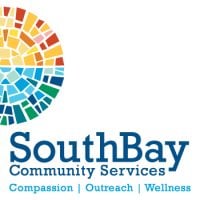Employment Resource Network
Drug Rehab Center in Salem, Massachusetts
- Opioid Addiction
- Dual Diagnosis
- Drug Addiction
- Alcoholism
The Employment Resource Network (ERN) in Salem, MA is a holistic treatment center dedicated to helping individuals suffering from substance use and co-occurring disorders achieve long-term sobriety.
Multiple patients have reported Employment Resource Network as permanently closed.
Research other rehabs in Salem, Massachusetts, or get help finding an open facility.
Our experts will find you an alternative facility.
(888) 674-0062 24/7 Free, Confidential, Expert HotlineAbout Employment Resource Network in Massachusetts
The Employment Resource Network (ERN) is a specialist treatment center based in Salem, MA. ERN is dedicated to providing support for individuals struggling with alcohol and substance abuse and those living with co-occurring mental health issues. ERN offers a wide range of care levels, from outpatient services to residential long-term stays for those suffering from substance use and co-occurring disorders.
The focus of ERN is on providing client-centered therapies and relapse prevention strategies. Family therapy and couples counseling are just a few of the holistic approaches taken to treating addiction. At ERN, individuals will also be guided in identifying areas of strength and growth, allowing them to develop the tools needed to recover from their addiction and navigate life’s challenges. With its welcoming and evidence-based program, ERN is committed to helping those in the Salem area achieve long-term sobriety.
Genders
Ages
Modality
Additional
Conditions and Issues Treated
With so many people addicted to opioids, we need to help those who want to quit. The cycle begins when opioid addicts take opioids for a painful injury. When someone starts taking their medication differently or in excess, it means they’re addicted and at risk of overdosing.
In , detoxing from these types of treatments is the most effective way to beat this. Most facilities begin with medical assistance and then provide counseling services; rehabilitation follows after successful treatment.
Alcohol Abuse, Dual Diagnosis (Co-Occuring Disorders), Opioid Addiction
Levels of Care Offered
This center offers a variety of custom treatment tailored to individual recovery. Currently available are Aftercare Support, Drug Rehab, Outpatient, with additional therapies available as listed below.
Alcohol or drug addiction, or co-occurring disorders, are treated in an outpatient program. The patient must attend therapy and other programs at the facility but can return home each night.
Outpatient treatment allows recovering addicts to live at home while receiving addiction treatment. Outpatients can attend group sessions for a few hours per week. Outpatients may also continue to work full time and study/attend school without interruption if they choose.
The accomplishment of completing a drug or alcohol treatment program is just the first step. Once that is complete, aftercare support comes into play. This includes helping people adjust to life without substances outside of guidelines with assistance like getting sober living accommodations and career counseling and AA/NA programs for those who are struggling between sobriety or want continued help in maintaining it once they have completed their initial rehabilitation at an addiction facility.
Aftercare comprises services that help recovering addicts readjust to normal day-to-day activities while working on specific issues. These problems include psychiatric issues, family problems caused by substance abuse, continuing education pursuits if desired during rehab, etc. These can last up to one year+ depending on what’s needed most urgently upon completion of earlier stages.
Therapies & Programs
Different people react differently to various treatment options. Some drug rehabilitation centers offer individualized treatment that caters to the specific needs of a drug addict. The best treatment option varies on an individual depending on the type of drug abused, life history, medical condition of the person, social circumstances, and the environment they live in now.
When a person enters drug rehab, they usually have anti-drug associations such as withdrawal symptoms, stress, cravings, etc. The first step of drug rehab is to detoxify the body from any residual substances in it. Drug rehabilitation centers usually employ trained medical professionals to help in this process. Usually, the initial detoxification lasts for five days, where the person is monitored under close supervision.
Couples therapy is a treatment method used to help couples in which at least one member of the couple has a drug addiction. The treatment is designed to help the couple strengthen their relationship to minimize the effects of drug addiction on their lives and promote healthy communication between them.
Couples therapy can be used whether the addicted partner is using drugs or in recovery. It helps the couple create healthy communication and coping skills to minimize the problem-solving abilities of one partner, which can then be directed at solving issues related to their addiction. It also helps couples address problems that may be related to drug addiction. Couples therapy can help couples feel like a team and not feel like their partner is the problem.
Couples therapy is very challenging for both the drug addict and their partner. It requires an intense commitment between the two individuals to participate in the sessions and the homework assigned between sessions.
An additional benefit of couples therapy is that it can help make other types of treatment, such as 12-step programs, more effective.
Family therapy sessions typically involve the addict and their family members. During these sessions, a therapist will work with everyone involved to help them understand addiction and find healthy ways of coping without substance abuse.
Some addicts might feel embarrassed about their substance abuse problems. By encouraging family members to attend these sessions, therapists can show addicts that they’re not alone in dealing with addiction. Therapists can also work with family members to help them understand addiction and learn how to offer support and encouragement to their loved one as they deal with substance abuse issues.
Attending group therapy at Employment Resource Network in , is a useful way for those seeking sobriety to realize they aren’t the only one going through it.
This is when a group of people on different recovery phases get together and talk about what they’re going through, their triggers, successes, and failures. This can include alternative types of therapies too! Group therapy may occur on an outpatient or inpatient basis with groups that have no pre-existing relationships outside the session, unlike support groups where everyone already knows each other beforehand.
Aftercare, Couples Therapy, Drug Rehab, Family Therapy, Group Therapy, Individual Therapy, Outpatient Treatment (OP), Residential Long Term (>30 Days)
Additional Details
Specifics, location, and helpful extra information.
Salem, Massachusetts 1970 Phone Number(978) 741-4052 Meta DetailsUpdated November 25, 2023
Staff Verified
Employment Resource Network Patient Reviews
There are no reviews yet. Be the first one to write one.
Salem, Massachusetts Addiction Information
Massachusetts has one of the highest rates of drug abuse in the country. More than half a million Massachusetts residents abuse alcohol while more than 1.5 million use illegal drugs each year. This drug and alcohol usage is the cause of over 8% of all deaths in the state. In 2017, Massachusetts ranked in the top 10 of the states with the highest opioid overdose rates.
The majority of drug users in Salem are between the ages of 18 and 25. In 2017, there were a total of 24 overdoses in Salem, with 19 of those involving opioids. Salem is also one of the top 10 cities in Massachusetts for alcohol-related crashes. 45% of drug users in Salem are employed. Inpatient or residential treatment is the most common type of treatment available in Salem, MA.
Treatment in Nearby Cities
- Pittsfield, MA (119.2 mi.)
- North Adams, MA (112.6 mi.)
- Orange, MA (71.4 mi.)
- Roslindale, MA (19.9 mi.)
- Marblehead, MA (3.1 mi.)
Centers near Employment Resource Network




The facility name, logo and brand are the property and registered trademarks of Employment Resource Network, and are being used for identification and informational purposes only. Use of these names, logos and brands shall not imply endorsement. RehabNow.org is not affiliated with or sponsored by Employment Resource Network.


